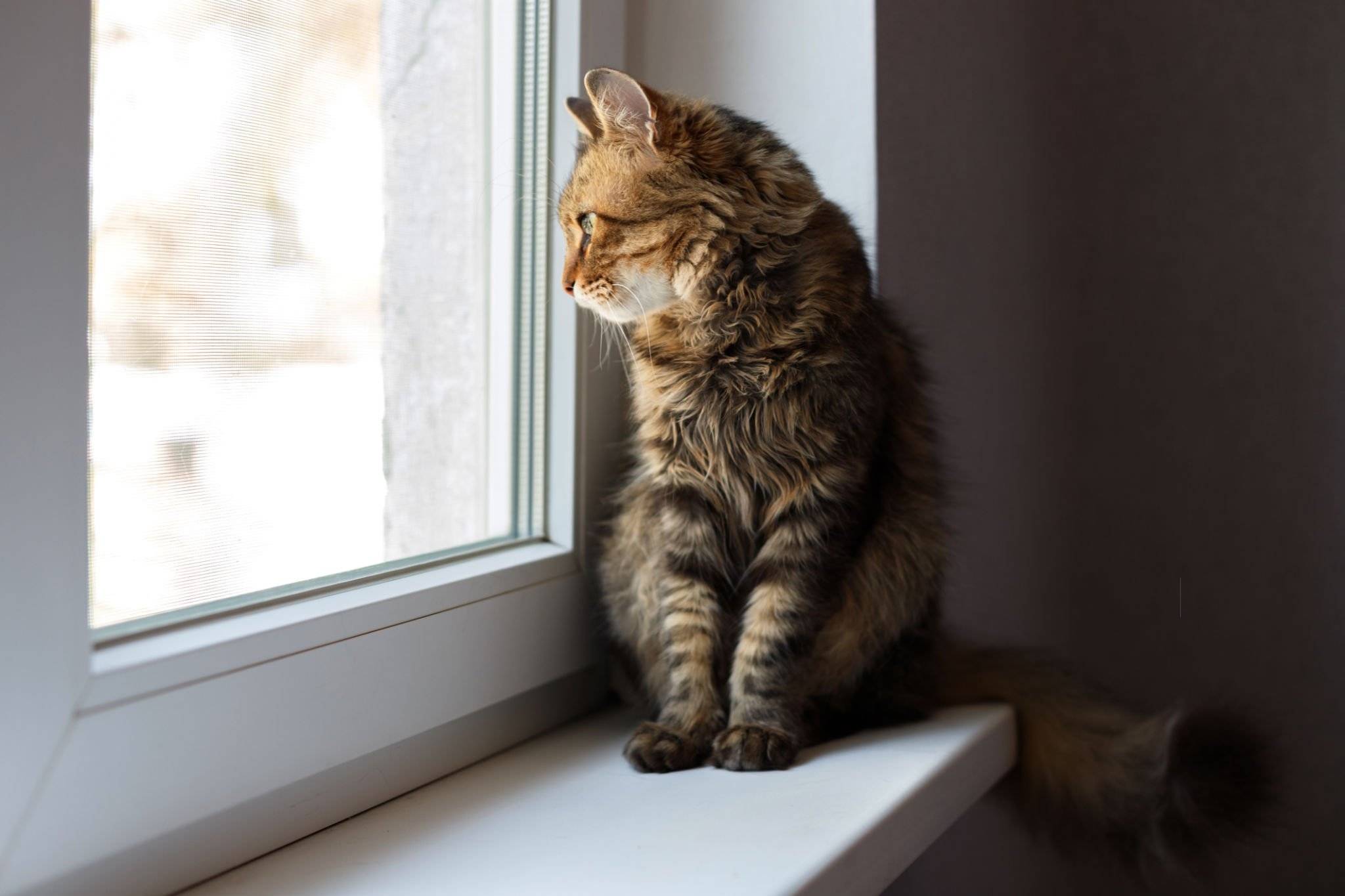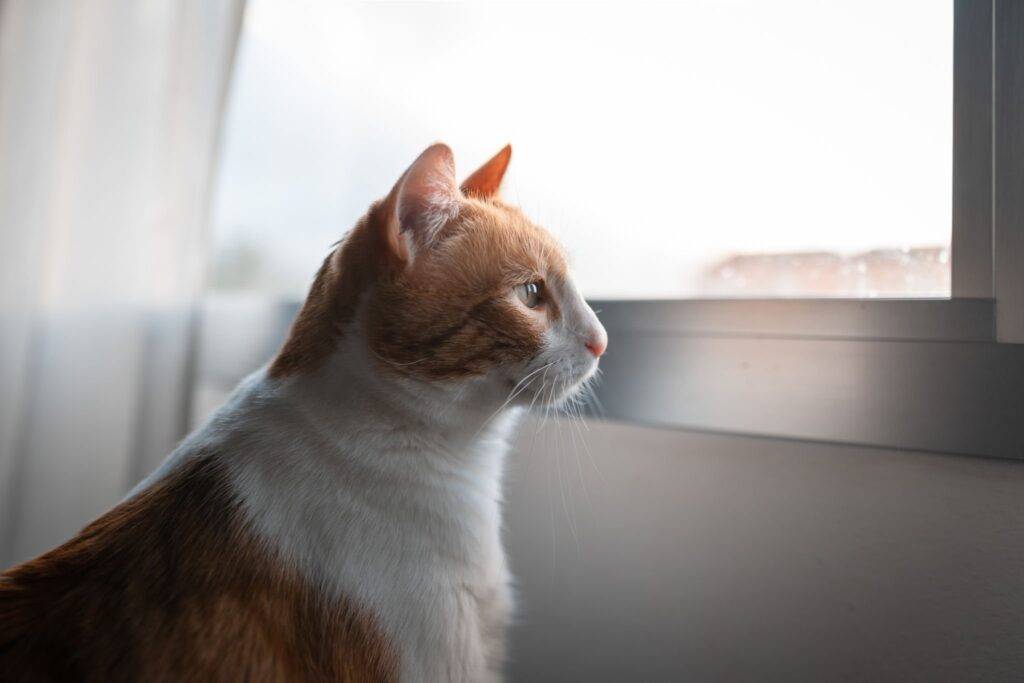
I understand the concern among pet owners about what goes through our minds when they leave the house. We are social animals, but we also value our independence and alone time. So, what do we think when our humans are away?
Well, it depends on our relationship with our humans and the regularity of their absences. If our humans leave the house frequently for work or other activities, we learn their routine and expect them to leave and return at a certain time. We may not be thrilled about them leaving, but we will often remain calm and wait patiently for their return. However, if our humans are gone for an extended period, we may start to feel anxious and stressed. We may wonder where our next meal will come from, how we will get water, and if we will have any companionship. This heightened anxiety can lead to destructive behavior, such as scratching furniture or urinating outside the litter box.
Key Takeaways
- Cats are social animals but also value their independence and alone time.
- Cats may become anxious and stressed when their humans are away for an extended period, which can lead to destructive behavior.
- Cats can differentiate between humans and other animals, learn their routines, and expect them to leave and return at a certain time.
Written from a Cat’s Viewpoint 😻: This article is written from the unique perspective of a cat, offering insights into their world and experiences. While the content is created with a touch of feline imagination, it’s based on factual information and research about cat behavior and cognition.
What Your Cat Thinks When You’re Gone
I know that many of us wonder what our humans are doing when they leave us alone at home. It can be a confusing and stressful time for us, especially if we are not used to being left alone for long periods of time. Research suggests that cats can also experience separation anxiety and find it hard to cope when left alone.
Although cats are known for their independence, we are still social animals and can become upset and stressed when separated from our human family. However, unlike dogs, we may not always show obvious signs of distress, making it easy for our owners to miss that we are struggling.
Cats are creatures of habit, and we can quickly learn our owner’s schedule and expect them to leave and return at a certain time. We have our own internal clocks and can tell time by observing external cues such as daylight, the smell of the air, and our own hunger.
Security camera footage has shown that cats who have established a strong bond with their owners will spend most of their alone time napping, with some periodic awake time to eat and play. But when the time approaches when our humans usually arrive home, we start waking up and prowling around because we know they should be home soon.
If you have adopted a new cat to your family and you leave them alone at home, they may feel confused or abandoned because they are yet to become accustomed to your schedule. Being left alone can be very stressful for a new cat, and they may worry when left alone.
How Cats Deal with Your Absence
I can find it challenging when my human leaves the house. In the wild, cats are social animals and remain loyal to their pack. Therefore, when we are separated from our human family, we can become upset and stressed. However, if my human frequently leaves the house to go to work or school, I will learn their routine and will expect them to leave and return at a certain time. I might not be happy about them leaving for work every day, but for the most part, I will remain calm and wait patiently for them to return.

New Family Member Cat or Dog and Separation Anxiety
As a pet owner, you need to understand the importance of addressing the issue of separation anxiety in new cats. When you adopt a new cat, it’s important to remember that they are still adjusting to their new environment and routine. Being left alone for the first time can be very stressful for them, and they may experience confusion or feelings of abandonment. When their anxiety is heightened, it can lead to destructive behavior such as scratching furniture, constant meowing, and even trying to escape.
Adopting a new cat requires patience and understanding. Separation anxiety is a common issue that should be addressed with care and attention. By establishing a routine and providing your new cat with love and security, they will become accustomed to their new environment and feel more comfortable when left alone. It’s important to ensure that your cat has access to food, water, and a litter box when you are away. With time and patience, your new cat will adjust to their new home and feel more secure when left alone.
It is also important for cat owners to provide them with plenty of toys and entertainment to keep them occupied while they are away.
What Do Cats Think About All Day
I know that many humans wonder what goes on inside our furry minds throughout the day. Do we miss them when they leave? Do we know they’re humans and not just larger dogs? Let me break it down for you.
As for what we think about all day, scientists believe the way cats think is probably very different from the way humans do. We don’t have language because we don’t have Wernicke’s language processing center in our brains. So we cannot learn and comprehend language. We can associate words with memories, but our minds are not wired to use language the same way as people. Without the ability to understand complex language, it becomes impossible to have complex thoughts and internal monologues.
Think about what you are thinking about when you are not thinking in words. In the absence of words, our thoughts tend to become unconscious and non-verbal feelings. The small amount of scientific research out there on cat brains leads us to believe that cats can only think subconsciously. We can draw upon memories to guide future behavior, but we do not come up with our own thoughts or ideas about a situation. Therefore, when your cat is chilling out, we are not thinking about anything in particular.
But at that moment, if you introduce a new element to our environment, like a gentle stroke, a fascinating new toy, or a delicious treat from the Cat Feeder, we will then use our working memory to link this scenario to a previous experience.

These feeders ensure that some degree of normalcy is maintained even when my owner is away. Now, whenever my owner leaves, I give them a subtle nudge towards the phone, hinting at the peace of mind Automatic Cat Feeders bring to both of us.
Do Cats Really Miss Us When We Are Gone?
I may not have complex thoughts or understand complex language, but I do miss my human when they are gone. Studies suggest that cats have a region in their brain, the caudate nucleus, that lights up when we smell the scent of a familiar human. While dogs might say the opposite to win your attention or love, we cats have our own subtle and endearing ways of showing affection and longing for our favorite humans.
Additionally, cats have their own way of telling time and understanding routine. When our human is gone, we may feel anxious or worried about their absence. But when they come home, we will be waiting at the door, ready to greet them with love and affection.
So, if you are a cat owner, remember that your cat may miss you when you are gone. Providing your cat with attention and stimulation while you are home can help alleviate their anxiety when you are away.
Do Cats Know That We Are Not Cats?
Cats can differentiate between humans and other cats through visual observation. According to a study, cats have a mental category for humans, and they treat them differently if they identify them as humans. However, it’s unclear whether cats understand that humans are a different species altogether.
Unlike dogs, who have been domesticated for thousands of years, cats have only been living with humans for about 10,000 years. This relatively short time might not be enough for cats to fully understand the concept of human beings as a separate species.
That being said, cats are highly intelligent and observant animals. They can recognize their owners’ voices and footsteps, and they can even learn to associate certain sounds with specific actions or events. So while cats may not fully comprehend the concept of humans as a different species, they are still aware of our presence and can differentiate us from other cats.
As for whether cats miss their owners when they leave the house, it’s a topic of debate among experts. Some believe that cats don’t have the same attachment to their owners as dogs do, while others argue that cats can form strong bonds with their humans. Ultimately, it depends on the individual cat and their personality.

[…] Curiosity piqued about how cats handle your absences? Check out our article Home Alone: How Cats Cope with Your Absence? Insights into Feline Separation Anxiety. […]